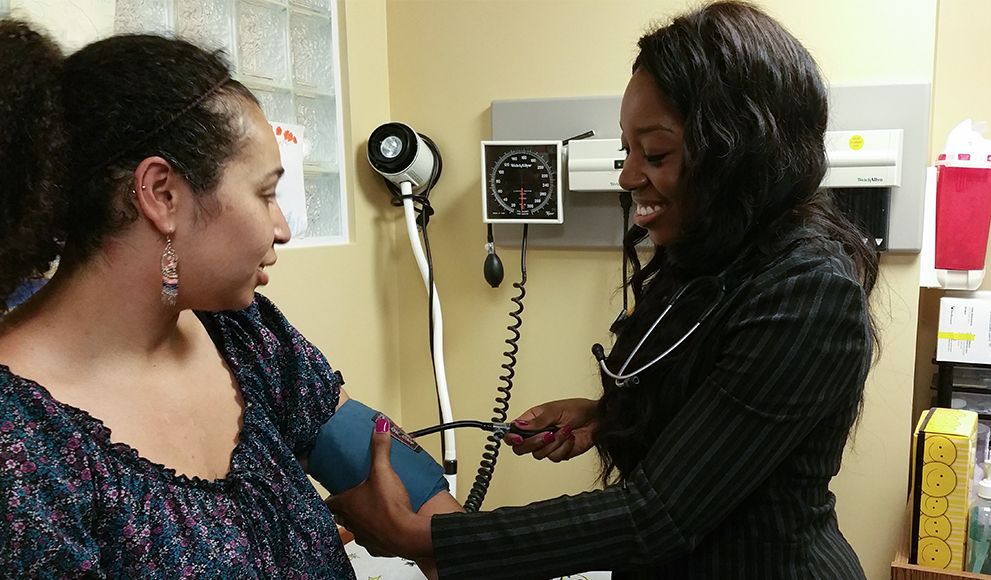Danielle Gore ’15 Found a Lasting Way to Support Pre-Med Students at Wellesley

Danielle Gore ’15 has wanted to become a doctor since she was 2 or 3, when, she said, she would borrow gauze and bandages from her mother’s first-aid kit to perform “emergency surgeries” on her cousins. Her passion continued in to high school when she interned at Le Bonheur Children’s Hospital in Memphis, and learned that serious medical issues—including some faced by her own family—are often influenced by sociological factors.
When Gore came to Wellesley as a first-generation college student, she said she experienced “outsider syndrome” and culture shock. “I think this negatively impacted my ability to connect with a lot of my peers in the sciences and hindered my ability to connect with many of my professors,” she said.
At first, Gore didn’t understand the implications of feeling disconnected. As she talked to other minority students, many of whom had been discouraged from studying science in high school and college, she said she realized that it was crippling to feel alone. “When you’re disconnected from your peers and professors, you are essentially isolated from your top resources for finding out about research openings, jobs, and other professional development opportunities,” she said.
By her junior year, Gore had “learned to navigate the system at Wellesley and create [her] own opportunities,” she said. That spring, she began a three-semester internship at Harvard Medical School’s Center for Primary Care that provided “a wonderful experience to delve more into the social determinants of health and think beyond the biomedical lens of health care.”
That experience fueled her desire to support other students by creating a Wellesley chapter of the Minority Association of Pre-Medical Students (MAPS). The group teaches members to study effectively, choose classes, and deal with heavy workloads. MAPS also provides monthly volunteer outings, partners with faculty and staff for events, creates opportunities for students, and helps with applications for medical school and internships.
The Wellesley branch of the Minority Association of Pre-Medical Students (MAPS) was named the 2015 Chapter of the Year for the New England region. “That was absolutely one of the proudest moments of my academic years,” said Gore, who founded the chapter in June 2014. “I want Wellesley’s future scientists, doctors, and health care workers to live up to their potential.”
At its biweekly meetings, the group encourages members “in both their times of success and struggle,” Gore said. Participants begin by discussing their “roses” and “thorns” for the week. “If someone had a rough week, we offer words of support. If someone had a great week, we congratulate them and encourage them to keep it up,” Gore said.
During her last semester, Gore balanced MAPS duties with her internship at Harvard and a research position at MIT’s Sloan School of Management, where she helped study the effects of patient compliance and insurance coverage on Type 2 diabetes outcomes. The latter taught her the importance of using entrepreneurship and patient-centered business strategies to solve health care’s most pressing problems.
Today, Gore is working as a medical scribe at a pediatric practice in Arlington, Mass., to gain more clinical experience before she applies to medical school. But Wellesley’s MAPS Chapter is never far from her mind. “I wanted to provide a firm foundation of leadership for the group and e-board, and I am confident that I created a good template for the next e-board to follow in my absence,” she said. “I want all minority pre-medical students to know that they can accomplish their goals in medicine and feel supported by their peers and professors in the sciences while doing so.”
